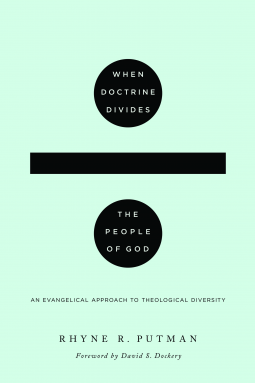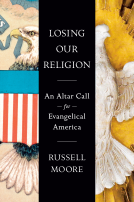
When Doctrine Divides the People of God
An Evangelical Approach to Theological Diversity
by
This title was previously available on NetGalley and is now archived.
Send NetGalley books directly to your Kindle or Kindle app
1
To read on a Kindle or Kindle app, please add kindle@netgalley.com as an approved email address to receive files in your Amazon account. Click here for step-by-step instructions.
2
Also find your Kindle email address within your Amazon account, and enter it here.
Pub Date May 19 2020 | Archive Date May 05 2020
Talking about this book? Use #WhenDoctrineDividesthePeopleofGod #NetGalley. More hashtag tips!
Description
Doctrine is important, but when is it important enough for Christians to diverge? When Doctrine Divides the People of God affirms the need for grace in disagreement and unity in diversity.
Doctrine is important, but when is it important enough for Christians to diverge? When Doctrine Divides the People of God affirms the need for grace in disagreement and unity in diversity.
A Note From the Publisher
PDF may not be compatible with all reading devices
Advance Praise
“Many have wondered how Christians who read the same Bible can come to such different conclusions about what it means. Rhyne Putman not only provides a thorough answer to that question; he also helps us live more peaceably and fruitfully amidst our differences. This helpful book will encourage Christians to hold their convictions with greater irenicism, humility, awareness, and wisdom.”
—Gavin Ortlund, Senior Pastor, First Baptist Church of Ojai; author, Finding the Right Hills to Die On
“With keen historical and philosophical insight, Rhyne Putman probes deeply the roots of Protestantism’s disputatious and division-making nature. He asks the right questions and addresses the roots of the problems that have prevented even evangelical Christians with a high view of Scripture from uniting in common causes for the sake of the gospel. Without diminishing or downplaying our differences and their consequences, he calls us to once more heed the call of Wesley in his famous ‘Catholic Spirit’ letter and reach across the theological divides and say ‘if your heart is as my heart, give me your hand’ in things we can do together for the sake of Christ. Here is a practical study of how to disagree in love, without becoming disagreeable, much less foes. Highly recommended!”
—Ben Witherington III, Jean R. Amos Professor of New Testament for Doctrinal Studies, Asbury Theological Seminary
“Rhyne Putman is one of the best Baptist theologians writing today, and he has given us a superb study on two themes central to Scripture: Christian unity and doctrinal diversity. Seldom have these topics been dealt with together in a more coherent way. This is an important book.”
—Timothy George, Research Professor of Divinity, Beeson Divinity School, Samford University; general editor, Reformation Commentary on Scripture
“This book by Rhyne Putman is superbly done. I will be quick to commend it to others who want to understand how to navigate Christian differences with conviction and compassion, with both a love for truth and a heart of love. The chapter on Wesley and Whitefield and their complicated relationship alone makes the book worth the price! Buy it and be blessed.”
—Daniel L. Akin, President, Southeastern Baptist Theological Seminary
“When Doctrine Divides the People of God is one of the most important books written since the turn of the twenty-first century. Biblically faithful, wise, and humane in his reflections, Putman addresses two of the most important questions of our time: First, how can faithful evangelical Christians come to such drastically different conclusions on matters of doctrine? Second, how should we handle those disagreements? Given that evangelical Christians will likely experience increased attacks from the antagonists of our secular age, we should take Putman’s advice to heart, uniting whenever and however we can, to bear witness to the gospel once for all delivered to the saints. Recommended highly and without reservation.”
—Bruce Riley Ashford, Provost and Professor of Theology and Culture, Southeastern Baptist Theological Seminary; coauthor, The Gospel of Our King
“In this fascinating book, Rhyne Putman models not only erudition and breadth of study but also a necessary concern for the union of doctrine and practice. This work needs to be read by evangelicals and nonevangelicals alike. It teaches and models epistemic humility in the face of scriptural authority, thus showing how we can foster both confessional commitment and unity in the gospel across confessional lines.”
—Matthew Pinson, President and Professor of Theology, Welch College
“If evangelicals share a commitment to the gospel and a high view of Scripture, then why isn’t there more agreement on theological matters? This is the thorny question that Rhyne Putman takes on and answers so ably in When Doctrine Divides the People of God. I wish I had read this book when I was a seminarian who thought he had all the answers! Like Putman, I long for a deeper sense of catholicity and a greater spirit of cooperation with fellow believers in other traditions. This book will help pastors, theologians, and other leaders work toward a greater embodiment of Jesus’s high priestly prayer of John 17 with conviction and civility.”
—Nathan A. Finn, Provost and Dean of the University Faculty, North Greenville University
Available Editions
| EDITION | Other Format |
| ISBN | 9781433567872 |
| PRICE | $24.99 (USD) |
Featured Reviews
 John M, Reviewer
John M, Reviewer
Did God really answer Christ’s prayer of unity in His Own Church of which He is building? The short answer is YES! Why done is His Christ’s Church divided?
In this book, the author diagnoses the reasons which make Biblical Evangelical believers sometimes to disagree on some specific teachings of the Bible, what this means to us as believers, and also helps us in coming up with ways that may minimize the disagreements.
What I loved best about the book is the taxonomy of stratifying doctrine under three tests of; hermeneutical test, Gospel test, and the praxis test. This division will grant us the skills and wisdom as to know when and how we may disagree amicably with other believers in a way that glorifies God.
I really wish I got a hold of this book back in 2012 when there was a great theological shift on my life, but as God would have loved it, He used that shift to help mature in the faith, and also love even more other believers that I may not see eye to eye on some doctrinal issues.
I encourage all to get this book and glean its nuggets of wisdom packed within it’s pages.
The author starts from the basic premise of evangelical Christianity. He doesn't focus on doctrinal differences among Catholicism and Orthodox brothers and sisters. It's a decent place to start. Great explanation of scholarly terms and an in-depth breakdown of where we agree and where we don't and possible factors attributing to both.
This book is full of references and probably better at an academic level. I read it as the topic of ecumenism is of particular interest to me.
 Donald J, Reviewer
Donald J, Reviewer
This is not light summer reading, but it is really important reading for relationships since none of always have it all right, ever. The gist of the book can be summed up with this quote from it: "Because we are recipients of God's grace, we should extend the same courtesy to those with whom we disagree. Love and patience should characterize our interpretive disagreements as imperfect readers of the Bible." This work is extremely well documented and researched. Putnam includes double-digits-worth of citations in every chapter, which are well themed to guide the reader into what are the root causes of why we read, interpret and understand the same words so differently. Putnam ties in lots of early church history and disagreements that took place between early church fathers. He says one thing we can learn from them is: "In my own life and from what I have seen in the lives of Whitefield and Wesley, continual, heartfelt prayer for one another, even for those who have wronged us, can change our disposition toward them, making us more empathetic to them and more concerned about their well-being." Or as Putnam quotes Wesley, love should be the equalizer in any of our disagreements - “Though we cannot think alike, may we not love alike?"




